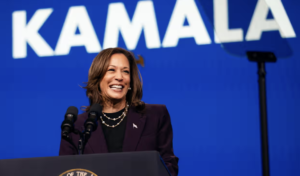Study Finds Two-Thirds of Female Professionals Believe They’re Unfairly Paid

MoneyWatch: Two-thirds of Female Professionals Believe They’re Unfairly Paid, Study Shows
A recent survey by Glassdoor revealed that around two-thirds of female professionals feel that their salaries are unjust, highlighting ongoing concerns about gender pay disparities in the workforce. The study also found that women across all levels of education earn approximately 20% less than their male counterparts in similar positions.
Released on Equal Pay Day, the survey underscores the persistent gender pay gap issue, symbolizing how long into the year women typically have to work to catch up to men’s earnings from the previous year.
The White House emphasized the broader significance of equal pay, framing it as a matter of fundamental national values such as equality, dignity, and fairness. However, even within its own ranks, gender pay disparities persist.
While policy measures like President Biden‘s executive order banning federal contractors from considering salary history have been implemented, efforts to pass legislation such as The Paycheck Fairness Act continue. Despite these initiatives, the gender pay gap remains pronounced, particularly for women of color.
Glassdoor highlights that the pay gap widens as women age and is exacerbated for women from marginalized communities. For example, Black and Hispanic women in rural areas earn just 56 cents for every dollar earned by rural white, non-Hispanic male workers.
Even obtaining a college degree does not necessarily close the pay gap for women. In fact, women with a college degree often face a larger pay gap compared to those without one. The disparity persists across education levels, with women consistently earning less than men with similar educational backgrounds.
Certain industries exhibit higher levels of perceived pay unfairness among women, including accounting, tech, and consulting.
In conclusion, despite ongoing efforts to address gender pay disparities, the issue persists, impacting women across various sectors and educational backgrounds. Closing the gap requires continued advocacy, policy reform, and cultural shifts to ensure fair and equitable compensation for all genders.
Repurposed article originally published in CBS News




/shethepeople/media/media_files/drclTXoZQC2H1SanCDfV.png)




